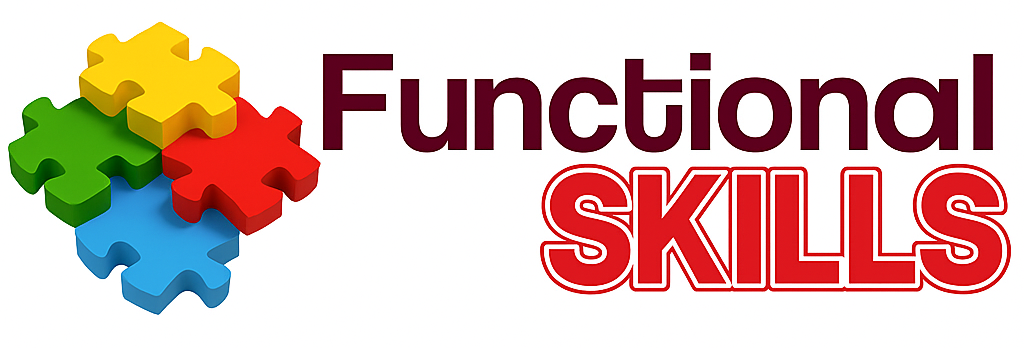Information for SCHOOLS
How much does it cost to send a pupil?
You'll need to contact us directly for specific pricing information but we charge per pupil per day. We have a minimum contract period of two terms (unless a short-term placement has been opted for) so our contracts are pretty flexible. Prices are influenced by how many pupils are sent to us and for how long as well as where within the academic year they are sent with early referrals attracting the cheapest daily rates. We structure our pricing dynamically for a variety of reasons; firstly, it gives schools pricing options so that a package can be structure that suits a budget. It also offers us, as a small business, some level of stability. Finally, we're also able to incentivise early referral which gives us the best chance of helping pupils to achieve as many qualifications as possible.
How quick is the referral process?
The referral process can be extremely quick. Some schools opt to reserve places that they can fill as and when they need them which streamlines things even further. But, it is possible to complete the initial enquiry, visit, and paperwork in one day and have the pupil start the following day. It all really comes down to the availability of all parties.
What qualifications do pupils do at PiPeLine?
Further down this page, we present information about all of the qualifications we presently deliver. But we focus heavily on pupils achieving 5 P8 GCSEs or equivalents with the additional safety net of Functional Skills Mathematics & English. All pupils will study GCSE English Literature, English Language, and Mathematics. Alongside this, pupils will also sit Functional Skills although some pupils struggle with the mandatory spoken component of Functional Skills. Pupils are usually expected to study the other NCFE P8 qualifications we deliver but, depending on how many days they attend for, the actual programme may not cover all of these qualifications.
How long are placements for?
Placements can be for almost any duration from two weeks upwards. It really depends on the needs of the pupil and the needs of the school. Shorter placements are more expensive.
Are you a registered school?
No, we are what is known as an "unregistered setting". Not all alternative education facilities meet the thresholds for being a registered school and a lot of unregistered settings cater for pupils with a variety of different challenges that can be difficult to manage within a mainstream setting. Schools are allowed to send pupils to unregistered settings as part of their provision of that pupil's education. Despite not being registered with the DfE as a school, we maintain the same delivery standards that registered settings would maintain. More often than not, when Ofsted inspect one of our partner schools, they will usually visit or speak with us to satisfy themselves that school are ensuring proper oversight. This can often result in multiple Ofsted visits per year - in fact, we once had three Ofsted visits in the space of a single week. We work closely with our partner schools to ensure that you are doing everything that Ofsted expects you to do so that when the call comes, everything goes smoothly.
Where do pupils sit their exams?
At our original centre (which is currently our KS3 base), we have a large, tranquil hall where pupils are able to sit their GCSEs and have done so for years. We also have three additional rooms where we can work with Special Adjustments for instance where a pupil needs a reader. Schools register us as a satellite centre, delivery exam papers to us before the exam, and we hand deliver them back to the school, or they are collected by the school once the exam is finished. All of our staff involved in the examination process are invigilator trained through our partnership with BDAT and Buttershaw Business & Enterprise College. Schools find that this works quite well - for a variety of reasons, it's not always suitable for a pupil to return to school to sit their GCSEs; problematic pupil relationships, problematic staff relationships, bad history etc. To give the pupil the best chance of success while also maintaining a calm exam setting back at school, this is usually the best solution. We do have capacity limits for our exam spaces and this is carefully managed.
How many pupils do you take?
Our KS4 provision has a maximum capacity of roughly 25 pupils per day. Realistically though, we usually have no more than 20 pupils on any given day. PiPeLine KS3 has a capacity of 15 but this is a dynamic capacity which can be lowered or slightly expanded depending on the needs of the pupils and the dynamics of the groups.
How do I start the referral process?
First thing is to contact the manager at the provision you're interested in to find out if there are any spaces available. That team member will discuss with you the vacancies, the needs of the pupil, and what a potential placement may look like. The next step would be to arrange a visit with the pupil and their family, and with a representative from school (although that isn't always necessary at this point.) If everyone is happy after the visit, someone from school completes our online referral form, the family completes the online parental consent form and from there, together we can plan a start date which could be as soon as the following day.
This is basically using a studio to make music and sounds. The course deliverer is active in the music industry working as a producer for some well known names while also creating music for the likes of the BBC and CBS. Using industry standard equipment, pupils will be taught how to manipulate sound to create music and sound effects as well as gaining a wider understanding of music.
Everything we do uses industry standard software and processes so that pupils would know what to do no matter what studio they visited. This qualification is perfect for pupils who would like to go on to further study in music, sound engineering, or broadcasting and it dovetails perfectly with L3 Music technology quals.
Music Technology isn't only about music. If pupils are not that into making music, the same technology is also used to make the sounds effects for movies, TV shows, computer games, even devices and websites. This is a career role called Foley Artistry. On top of this, Music Tech teaches excellent ICT and problem solving skills.
We feel that a lot of our pupils are more cut out for running their own business due to a fierce independent tendency. This qualification helps them understand how businesses are put together and how they are run. From starting up, through to managing cash and the legal steps, they'll learn a broad spectrum of business skills.
They learn about the different types of business and the different types of business people. They'll look at famous entrepreneurs and try to understand how they became successful. Pupils who have begun studying Business at school can, more often than not, easily get on board with this qualification.
Though they may never become an entrepreneur, by understanding how business works, they'll have a better understanding of how to take advantage of opportunities in life and also be set up to understand legal aspects of their jobs. And you never know; the stuff they learn on this course might resurface when they're older and they might just go on to starting their own company.
The Health & Fitness qualification had obvious benefits from a PE and overall health education perspective. The qualification, taught by a professional personal trainer, is ideal for pupils interested in sports, sports science, personal training, or other fitness related FE. The qualification complements Food & Cookery and GCSE Biology.
As well as understanding how the body works when it comes to fitness, pupils will work to understand the key role nutrition plays in health and fitness. This fits in well with the Food & Cookery qualification where they go even deeper into understanding food.
Some pupils prefer to get stuck in. With visits to sports centres, playing fields, and in-house fitness activities, pupils can put all their learning into practice and get involved in some actual fitness sessions. The Health & Fitness instructor also works as a Personal Trainer on evenings and weekends and so has a real life understanding of fitness & how to get into the industry.
The dish in the picture was made by one of our pupils for their qualification. Pupils learn about what goes on behind the scenes in a restaurant kitchen from menu preparation, costing, sourcing ingredients, to full food preparation. The course deliverer worked in the industry for most of her life and understands the pressures of a catering environment.
Another pupil's dish - but they don't only cook desserts. Pupils learn about the different food groups and how balanced meals are put together. If your pupil wants to be a chef, this is a great qualification but of course, the ability to cook great, nutritious meals from scratch at home is an essential life skill quite outside of the qualification.
Yes, pupils learn how to make restaurant quality dishes in a catering level kitchen. Yes, they learn how to make food that can easily be made at home. Yes, they make a variety of different dishes, some healthy, some not so much. And yes, they get to eat it after they've cooked it (or sometimes take it home!)
GCSE English

Literature & Language
GCSE Maths

Foundation or Higher
GCSE Biology NEW

Foundation
Functional Skills English & Maths

L1 & L2
Other Subjects PSHE, Artificial Intelligence, Life Skills

Additional Learning
At KS4, pupils are expected to arrive between 9.30am and 9.50am. Staff wait outside the building and bring them in either as a group or on their own when they arrive. The day ends at 2.45pm and pupils are escorted to their transportation.
At KS3, pupils are expected to arrive between 10 and 10.30am. Again, staff wait outside to welcome pupils. The day ends at 2pm and staff wait outside with pupils until all of them have gone.
We send registers every morning via a custom built register system that emails schools with a PDF of the registration marks. This is updated as and when is needed. We use CPOMS Engage so it is possible to set up sharing contracts so that school can receive real-time CPOMS entries. We also communicate with schools via emails and telephone, depending on what is preferred.
As a general rule, we remain at all times within our provision. Lunch is brought to us and we all eat in the communal areas. We have another space called the Listening Room where pupils will often relax during breaks and play the Playstation. We also have other activities on the go as well as other classic gaming machines.
We're understanding and trained in dealing with such responses. We have a room called the "Listening Room" where pupils can spend some time to recharge, relax, and regulate themselves. It's a pretty relaxing space. We also employ a variety of other strategies to help pupils manage a variety of emotions and emotional states and so we will work with them to bring them back to a level.
We have a variety of different meals available which are bought in from surrounding food places. A lot of pupils choose to have food from Greggs while some will order meals from the cafe in the building. We provide pupils with a bottle of water, a packet of crisps, and a cereal bar each day. Tea, coffee, and hot chocolate is also available. If pupils arrive early enough, we provide toast and cereal. While we do encourage healthy eating and do try to encourage pupils to eat a good, varied meal, we will order what they will eat (within reason) as we don't like food waste. Vegetarian, Vegan, and Halal options are always available. All food is included in the daily cost of the provision.
